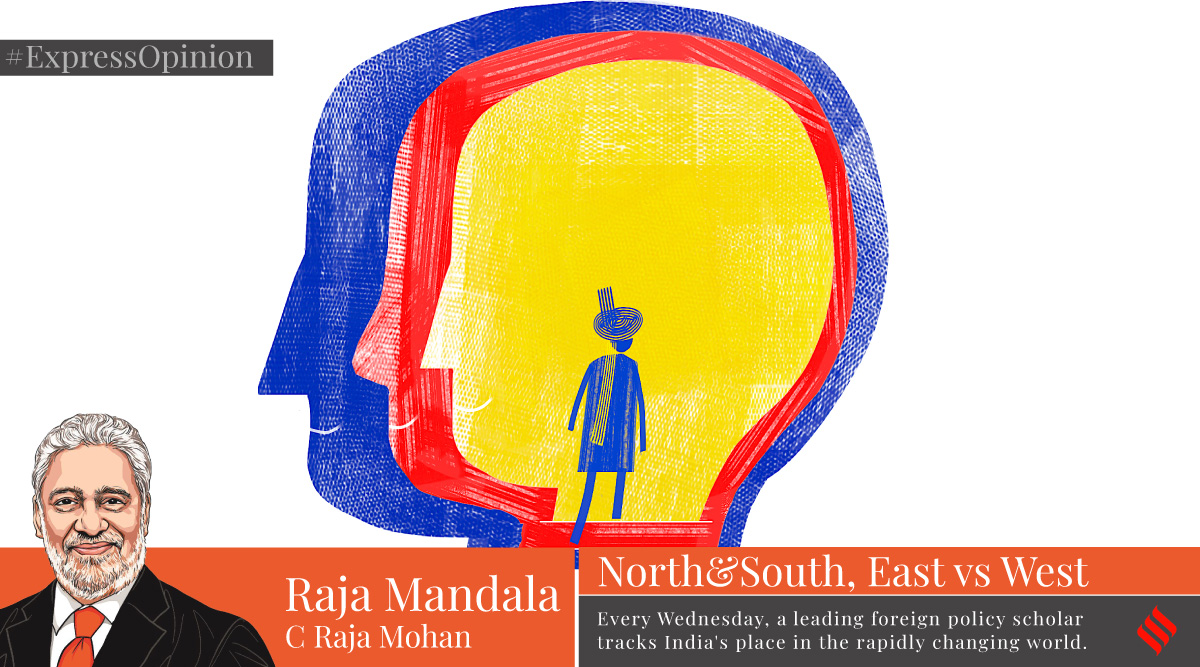It can now be said plainly. Post-Cold War multilateralism is past its peak — at both the global and regional levels. This week’s East Asia Summit in Jakarta and the G20 summit in Delhi highlight the deep and arguably irreversible crises in the old multilateral order. The dying embers of old multilateralism are marked less by the absence of Russian President Vladimir Putin and Chinese President Xi Jinping at both summits than by their deepening conflicts with the rest of the world. Russia is locked in a war with the West over Ukraine, and China is at odds with many of its Asian neighbours, including India, Japan, the Philippines, and Vietnam, as well as the US.
The gloomy prospect for multilateralism is in contrast with India’s brightening opportunities to shape regional and global orders. Delhi’s role is critical in the Indo-Pacific Quadrilateral Forum, in the attempt to broaden the ambit of the G20 to address the concerns of the Global South and in the promotion of balanced globalisation that will help all countries.

Although there is much focus on the Russian invasion of Ukraine and the problems it has created for the world economy and the forging of a consensus at the G20, it is Xi’s China that presents enduring challenges to multilateralism. With its new-found economic clout and growing military power, Chinese expansionism has begun to pose a great challenge in Asia, and its staunch support for Russia is part of the problem in Europe.
As India’s bilateral challenges with China multiply, regional and global multilateralism has emerged at the core of
India’s national security and international relations. No wonder India is investing so heavily in multilateral diplomacy, including the Quad and G-20 and is making bold departures from the traditional tenets of its multilateralism.
The end of the Cold War at the turn of the 1990s created favourable conditions for an intensive phase of multilateralism. Europe moved towards rapid regional economic integration and expansion under the banner of the European Union. In Asia, the Association of Southeast Asian Nations provided the framework for intensifying regional economic and political cooperation. Regionalism in Europe and Asia was facilitated by the end of the great power rivalry in both continents. Russia was drawn into the Group of Seven leading Western countries, making it the G8. Moscow was also engaged in consultations with the NATO.
Also by Raja Mohan | Don’t fall for China’s rhetoric – BRICS isn’t NAM
In Asia, China became a close partner for the US on economic and political fronts. This, in turn, translated into new possibilities for cooperation among major powers on global issues — such as the proliferation of weapons of mass destruction, climate change, and pandemics. The integration of China into the World Trading Organisation in 2001 gave a huge boost to Beijing’s economy, which rapidly emerged as the world’s second-largest after the US.
The 2008 global financial crisis underlined the urgency of expanding the G7 to bring in the middle powers to restore stability to the global economic order. But no sooner than multilateralism got a fresh wind behind its back, the contradictions within the system came to the fore.
The Russian occupation and annexation of Ukraine’s Crimean Peninsula in 2014 marked the first major crisis of the post-Cold War security order in central Europe and has led to the Russian war against Ukraine. Asia has, over the last decade, seen China’s growing unilateral efforts to alter the borders with neighbours. China has also sought to manipulate the rest of the world’s dependence on its economy for political and strategic gains. Xi’s reversal of key policies initiated by Deng Xiaoping in the 1980s — peaceful periphery and common prosperity — has devastated regional and global institutions.
In Asia, the ASEAN-led regional institutions struggle to cope with China’s aggressive territorial expansionism. In the inevitable pushback, the last few years have seen the rise of new security institutions like the Quad, the AUKUS that brings together Australia, Britain, and the US, and the trilateral compact in Northeast Asia between the US, Japan and South Korea. This has raised questions about the continuing centrality of the ASEAN in shaping the regional order in Asia.
Also Read | Sanjaya Baru writes: Too much government in G20 – people matter too
Beijing’s attempt to gain unilateral economic advantages has compelled the US and Japan to de-risk the massive interdependence with China built over the decades. Like much of the world, India also bet in the 1990s that economic cooperation with Beijing would be mutually beneficial and help resolve political differences. Thanks to Xi’s hegemonic ambitions, India has been cured of that illusion.
In the 1990s, Moscow persuaded Delhi to join hands with Beijing in promoting a multipolar world that would counter American unilateralism. This core principle of India’s post-Cold War multilateralism has begun to unravel as economic and security threats mounted from China. The problem for Delhi, it became increasingly clear, was from a “unipolar Asia” dominated by Beijing, rather than from a “unipolar world” led by the US. An expansive and positive US engagement with India aided this profound shift in Delhi’s perspective. India embraced the Indo-Pacific idea and revived the Quad that had gone moribund in 2007. This involved greater military-strategic cooperation with Australia, Japan, and the US in Asia.
Four features of India’s new multilateralism stand out at the Jakarta and Delhi summits.
First, in Jakarta, Modi will underline that the Quad is not in competition with the ASEAN but will complement its efforts to promote regional stability through more bilateral and minilateral security cooperation to deter and limit unilateralism and territorial expansionism.
Second is India’s focus on what External Affairs Minister S Jaishankar calls a “re-globalisation” “that is more diversified, more democratic, where there would be multiple centres of production, not just of consumption.” Put simply, globalisation can’t be tethered to China’s factories and Beijing’s political fancies.
Most Read 1Australia vs South Africa Highlights, World Cup 2023: Kagiso Rabada scalps three as SA blow AUS by 134 runs 2Israel-Hamas War News Live Updates: Dropped 6,000 bombs on Gaza since start of war, says Israeli military; Blinken meets Netanyahu, assures US support 3Shahid Kapoor reveals his son was shocked after watching Jab We Met: ‘He said that’s how you look without a…’ 4Kiran Kumar says his ‘B and C-grade films’ paid for dream house: ‘Pillars alone cost Rs 44 lakh’ 5Sonakshi Sinha says Salman Khan started laughing when he heard her first salary was Rs 3000: ‘He said buy me a gift’
Third, India is not walking away from finding collective solutions despite the current crisis in multilateralism. India has put in much effort in the last nine months not to tie the fate of the G20 to just a few issues like Ukraine but to pursue agreements on a range of consequential issues, like modernising the global tax regime and reforming the multilateral development banks.
Finally, putting the concerns of the Global South on the G-20 agenda is likely to be a lasting contribution to India’s new multilateralism. Although widely misunderstood as a return to the old confrontational politics of the NAM in the 1970s, Delhi’s current emphasis is on building bridges between developing and developed countries. Many in the developed world are waking up to the importance of greater cooperation between the North and the South amidst the breakdown of relations between the East and the West.
Also ReadJews and Brahmins — West would like you to see them as oppressors alone. …Mrinal Pande writes: On the ground in Israel, I saw the darkness descendIndians struggle with high blood pressure. And it’s not about lifestyleThe secret to India’s Asian Games success? An empowering sports policy
The writer is senior fellow, Asia Society Policy Institute, Delhi and contributing editor on international affairs for The Indian Express
© The Indian Express Pvt Ltd



